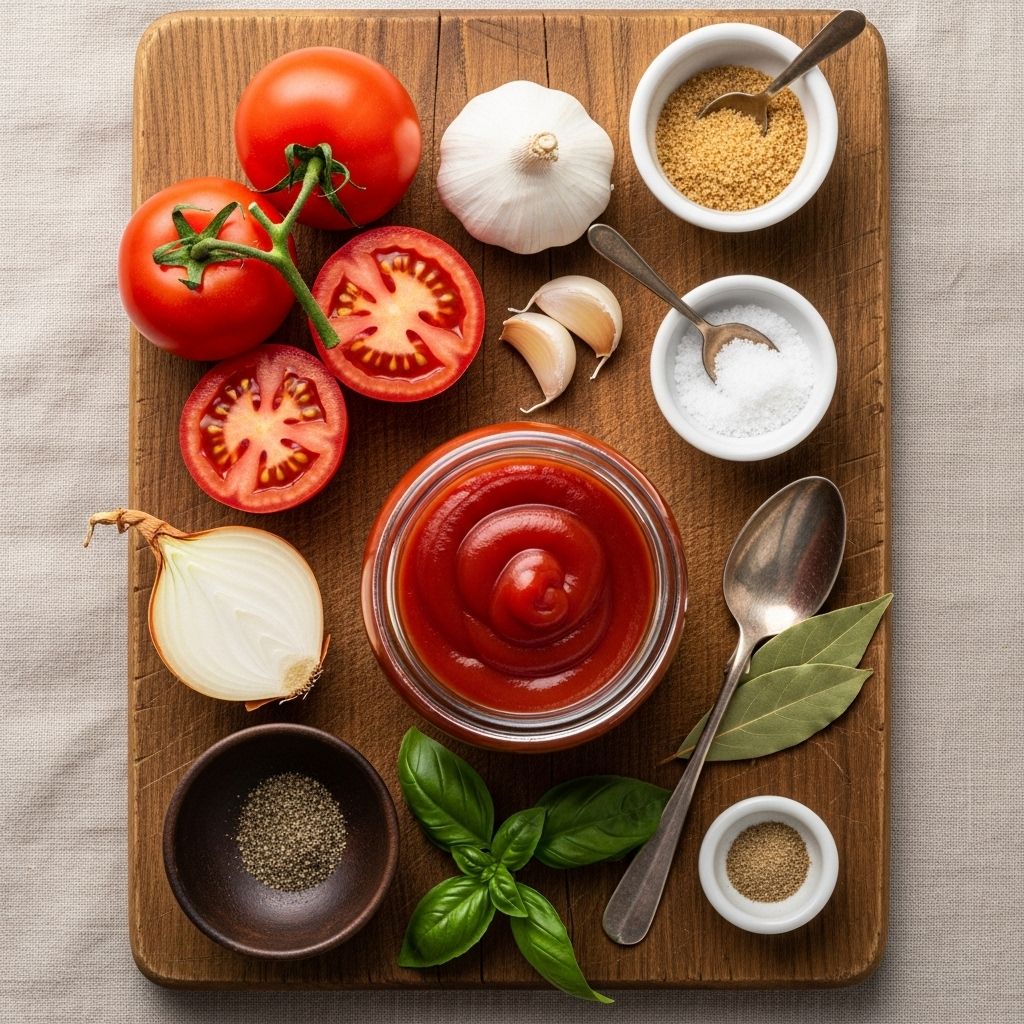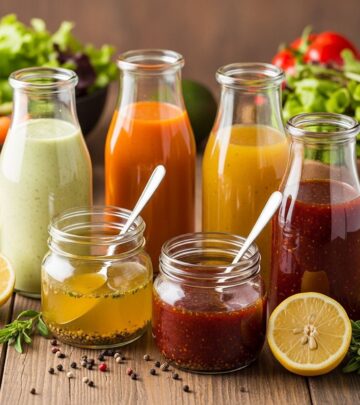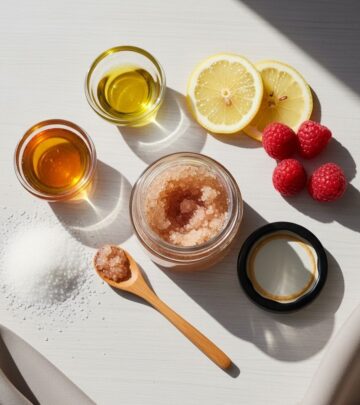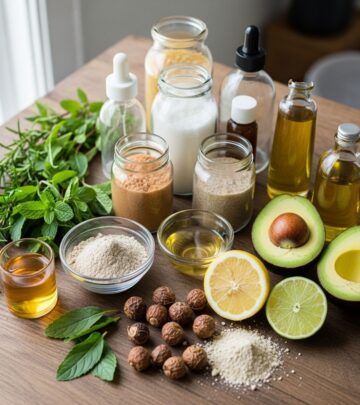Homemade Ketchup Recipe: Complete Guide To Fresh, Flavorful DIY
Discover the rich, vibrant flavors of made-from-scratch ketchup that will elevate any dish

Image: HearthJunction Design Team
The Ultimate Guide to Homemade Ketchup
There’s something deeply satisfying about creating condiments from scratch, and homemade ketchup is no exception. When you make your own ketchup, you control the ingredients, adjust the sweetness to your liking, and create a fresher, more vibrant flavor profile than anything you’ll find on supermarket shelves. This comprehensive guide will walk you through everything you need to know about crafting the perfect homemade ketchup.
Why Make Homemade Ketchup?
Before diving into recipes and techniques, let’s explore why making ketchup at home is worth the effort. Store-bought ketchup often contains high fructose corn syrup, preservatives, and artificial flavors. By contrast, homemade versions offer:
- Superior Taste: Fresh ingredients create deeper, more complex flavors
- Customizable Sweetness: Adjust sugar levels to suit your preference
- Healthier Option: Control sodium levels and avoid preservatives
- Dietary Flexibility: Easily make vegan, low-sugar, or allergen-free versions
- Sustainable Choice: Reduce packaging waste and potentially use homegrown tomatoes
Essential Ingredients for Homemade Ketchup
The beauty of homemade ketchup lies in its simplicity. While recipes vary, these core ingredients form the foundation of most homemade ketchup recipes:
Base Ingredients
Tomatoes are the star of any ketchup recipe. You can use fresh tomatoes (preferably ripe, in-season varieties) or canned tomatoes for convenience. If using fresh tomatoes, you’ll want to remove the skins and seeds for a smooth texture. For canned options, whole tomatoes in juice offer the best flavor, though tomato paste can work in a pinch for quick versions.
Beyond tomatoes, you’ll need acidic components like vinegar (typically apple cider or white vinegar), sweeteners such as brown sugar or molasses, and aromatics including onions and garlic. These create the balanced sweet-tangy profile that defines great ketchup.
Spices and Seasonings
The spice blend is what truly distinguishes homemade ketchup from commercial varieties. Common spices include:
- Allspice
- Cloves
- Cinnamon
- Fresh ginger
- Red pepper flakes (for heat)
- Salt and black pepper
Classic Homemade Ketchup Recipe
This recipe creates a rich, flavorful ketchup that balances sweetness with tanginess and aromatic depth. It makes approximately 2 cups of finished ketchup and can be stored in the refrigerator for up to one month.
Ingredients
- 1 tablespoon olive oil
- 1 medium onion, sliced into half moons
- 2 garlic cloves, chopped (about 1 tablespoon)
- 1-inch piece of fresh ginger, peeled and chopped
- ¼ teaspoon ground allspice
- ¼ teaspoon red pepper flakes (optional, for spicy ketchup)
- 2 tablespoons tomato paste
- 1 (28-ounce) can whole tomatoes in juice
- 3-4 tablespoons brown sugar (adjust to taste)
- ¼ cup apple cider vinegar
- Salt and freshly ground black pepper to taste
Instructions
- Sauté Aromatics: Heat olive oil in a medium saucepan over medium heat. Add the onions and cook until softened, sweet, and lightly browned, about 8 minutes. This caramelization process adds depth to your ketchup.
- Add Spices: Incorporate the garlic, ginger, red pepper flakes (if using), and allspice. Cook while stirring frequently for about 2 minutes until fragrant.
- Develop Tomato Flavor: Add the tomato paste and cook, stirring continuously, until it deepens in color from bright red to a deeper orange-red, about 2 minutes. This step helps develop richer tomato flavor.
- Combine Main Ingredients: Add the canned tomatoes with their juice, 2 tablespoons of brown sugar, cider vinegar, salt, and pepper. Stir to combine thoroughly.
- Taste and Adjust: Sample the mixture and add more brown sugar if desired. Most homemade recipes work best with 3-4 tablespoons total, but adjust according to your preference.
- Simmer: Bring the mixture to a simmer, then reduce heat slightly and cook at a low simmer, stirring occasionally, until thickened and shiny, about 20 minutes.
- Blend: Remove from heat and carefully transfer to a blender, or use an immersion blender directly in the pot. Blend until completely smooth.
- Cool and Store: Allow the ketchup to cool to room temperature before transferring to airtight containers. Refrigerate for up to one month.
Quick Homemade Ketchup (In-a-Pinch Version)
When you’re short on time but still want homemade flavor, this quick version comes together in minutes using pantry staples.
Ingredients
- 1 can (6 oz) tomato paste
- 2 tablespoons white vinegar
- 2 tablespoons brown sugar
- ½ teaspoon garlic powder
- ½ teaspoon onion powder
- ¼ teaspoon allspice
- ½ teaspoon salt
- 1 tablespoon molasses
- 1 tablespoon corn syrup (optional)
- ¼ cup water (adjust for desired consistency)
Instructions
- Combine all ingredients in a small saucepan over low heat.
- Whisk until thoroughly blended and smooth.
- Simmer gently for 5-7 minutes, stirring occasionally.
- Taste and adjust seasonings as needed.
- Cool completely before transferring to a storage container.
Fresh Organic Ketchup
For those preferring an all-natural approach with fresh ingredients, this organic ketchup recipe uses fresh tomatoes and natural sweeteners.
Ingredients
- 4 pounds ripe tomatoes, seeded and diced
- 1 large onion, chopped
- 2 cloves garlic, chopped
- ¼ cup unsweetened apple juice
- ⅓ cup honey or maple syrup
- ⅓ cup apple cider vinegar
- 1 teaspoon sea salt
- ¼ teaspoon cinnamon
- ¼ teaspoon celery seed
- ⅛ teaspoon cloves
Instructions
- Combine tomatoes, onion, garlic, and apple juice in a large, heavy-bottomed pot.
- Bring to a boil, then reduce heat and simmer uncovered for about 45 minutes until vegetables are very soft.
- Using an immersion blender or food processor, purée the mixture until smooth.
- Pass the purée through a fine-mesh sieve to remove seeds and skins, returning the smooth liquid to the pot.
- Add remaining ingredients and bring to a simmer.
- Cook uncovered, stirring frequently, until reduced to desired thickness (approximately 1-2 hours).
- Cool completely before refrigerating in airtight containers.
Flavor Variations and Add-ins
One of the joys of homemade ketchup is the ability to customize flavors. Consider these variations to make your ketchup truly unique:
Spicy Ketchup
Add one or more of these ingredients for heat:
- Cayenne pepper (¼-½ teaspoon)
- Hot sauce (1-2 teaspoons)
- Diced jalapeño (1 small pepper, seeds removed)
- Chipotle in adobo (1 tablespoon, puréed)
Smoky Ketchup
Create depth with:
- Smoked paprika (1 teaspoon)
- Liquid smoke (¼ teaspoon)
- Fire-roasted tomatoes instead of regular canned tomatoes
Herb-Infused Ketchup
Add fresh herbs in the last 5 minutes of cooking:
- Basil (2 tablespoons, chopped)
- Thyme (1 tablespoon, leaves only)
- Rosemary (1 teaspoon, finely chopped)
Troubleshooting Common Issues
Even experienced cooks occasionally encounter challenges when making ketchup. Here are solutions to common problems:
Ketchup Too Thin
If your ketchup isn’t reaching the desired thickness, try:
- Continue simmering uncovered to reduce further
- Add 1-2 additional tablespoons of tomato paste
Ketchup Too Thick
If your ketchup becomes too concentrated:
- Add water, 1 tablespoon at a time, until reaching desired consistency
- Add additional tomato juice or apple juice
Ketchup Too Sweet or Too Tangy
Balancing sweetness and acidity is key:
- Too sweet? Add more vinegar, ½ tablespoon at a time
- Too tangy? Add more sugar, ½ tablespoon at a time
Storage and Preservation
Homemade ketchup lacks commercial preservatives, so proper storage is essential:
Refrigerator Storage
Store in airtight glass containers in the refrigerator for up to 1 month. The high acid content helps preserve it naturally, but always check for signs of spoilage before using.
Freezer Storage
Freeze in small portions (ice cube trays work well) for up to 6 months. Thaw in the refrigerator before using.
Canning for Long-Term Storage
For shelf-stable ketchup, you can process it in a water bath canner. Follow standard canning procedures for high-acid foods, processing in sterilized jars for 15 minutes. Properly canned ketchup will keep for up to 1 year in a cool, dark place.
Serving Suggestions
Homemade ketchup shines in both traditional and unexpected applications:
Classic Pairings
- French fries and roasted potatoes
- Burgers, hot dogs, and sandwiches
- Meatloaf and meatballs
- Scrambled eggs and breakfast potatoes
Creative Uses
- Base for barbecue sauce (add molasses, Worcestershire, and spices)
- Mix with mayonnaise for a gourmet “special sauce”
- Add to stir-fry sauces for sweetness and depth
- Use as a marinade ingredient for meats and vegetables
Frequently Asked Questions (FAQs)
Q: Can I use fresh tomatoes instead of canned?
A: Yes! Use 3-4 pounds of fresh, ripe tomatoes. Blanch them in boiling water for 30 seconds, then immediately transfer to ice water. The skins will slip off easily. Remove cores and seeds, then proceed with the recipe.
Q: How can I make ketchup without refined sugar?
A: Substitute brown sugar with honey, maple syrup, or coconut sugar. You can also use dates: soak 6-8 pitted dates in hot water for 15 minutes, then blend into a paste and add to your recipe.
Q: Why did my ketchup separate during storage?
A: Some separation is normal. Simply shake or stir before using. For less separation, ensure thorough blending and reduce the sauce to a thicker consistency during cooking.
Q: Can I make ketchup without vinegar?
A: Vinegar provides essential acidity for flavor and preservation. You can substitute lemon juice or lime juice, though this will alter the flavor profile.
Q: Is homemade ketchup cheaper than store-bought?
A: The cost comparison depends on ingredient quality and source. Premium homemade ketchup using organic ingredients may cost more than basic commercial brands but offers superior quality and flavor.
With these recipes, techniques, and tips, you’re ready to create delicious homemade ketchup that will elevate everything from burgers to breakfast. The satisfaction of crafting this pantry staple from scratch, tailored exactly to your taste preferences, makes the effort worthwhile. Enjoy the process of experimenting with different variations until you find your perfect signature ketchup recipe!
References
Read full bio of Shinta












